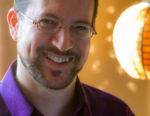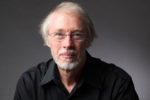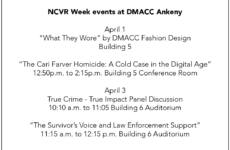The 2017 Literary Arts Festival is April 3rd-5th. Noted fiction and poetry writers will be coming to the six DMACC locations. Each writer has a different experience and brings a different perspective to the literary field. DMACC students can listen to these published writers speak about their works and learn a bit about how to make a career out of writing. There will also be a public event featuring DMACC students and the visiting writers.

Kevin Brockmeier
Iowa Writers’ Workshop
Kevin Brockmeier is the author four novels, two short-story collections, and a children’s novel. His work has appeared in The New Yorker,McSweeney’s, Zoetrope, Tin House, Best American Short Stories, The Year’s Best Fantasy and Horror, and New Stories from the South. He has received three O.Henry Awards, the PEN USE Award, a Guggenheim Fellowship, an NEA Grant, and was named Granta Magazine’s Best Young American Novelist.
Q&A
What was your experience of teaching at the Iowa Writers’ Workshop like?
It can be intimidating, no matter how often I do it. (I’ve spent five separate semesters teaching here so far.) The students in the Workshop are all such talented critics, and I know that I’m never the sole authority on any given topic. I do my best to respond honestly to every story we discuss on its own terms, though, and I work very hard, and I think the students appreciate that.
What is your writing process like?
Writing is slow, slow, slow for me—but then I’ve stopped expecting it to be otherwise. I broach my sentences one tiny piece at a time, termiting away at them until I’m satisfied that they present the right effect. Hour by hour I get very little done, but there are an awful lot of hours wrapped up in every story I write. The only thing I can say I’ve learned for certain is that the more time I’m able to spend writing, the more I’ll eventually, slowly, painstakingly, accomplish. I keep going by reminding myself that, at any given moment, my job isn’t to write a good novel, or even a good chapter, but a good sentence. All sentences present their own dilemmas, and I often find it difficult to bend them to their purpose, but the effort to satisfy whatever demands each one seems to be making of me, and to follow the hints it offers about what’s coming next, frequently dictates the direction of the story I’m imagining.
The works you are most proud of?
Of my novels, probably The Illumination. Of my short stories, probably “The View from the Seventh Layer, “Andrea Is Changing Her Name,” and “A Fable with Slips of White Paper Spilling from the Pockets.” My most recent book, A Few Seconds of Radiant Filmstrip: A Memoir of Seventh Grade, was a new sort of challenge for me—my lone work of nonfiction—and I’m proud of having figured out how to approach it.
What advice do you have for college students who want to write?
The two pieces of advice that every working writer would offer every aspiring writer are to read as much as you can and to write as diligently as you’re able. Aside from that, I like what Antoine de Saint-Exupery had to say: “If you want to build a ship, don’t drum up people together to collect wood and don’t assign them tasks and work, but rather teach them to long for the endless immensity of the sea.” The books you love best—those are the immensity of the sea.

Charles D’Ambrosio
Iowa Writers’ Workshop
Charles D’Ambrosio is the author of two collections of short stories, The Point, and The Dead Fish Museum, which was a finalist for the PEN/Faulkner Award, as well as the essay collections, Orphans and Loitering: New and Collected Essays. He’s been the recipient of a Whiting Writer’s Award, a Lannan Fellowship, and his work has been widely anthologized and selected for the Pushcart Prize, Best American Short Stories, and the O. Henry Award. His first book was a finalist for the PEN/Hemingway Award, and his most recent collection, The Dead Fish Museum, was a finalist for the Pen/ Faulkner Award. His work frequently appears in The New Yorker, as well as in Tin House, The Paris Review,Zoetrope: All-Story, and A Public Space. He currently teaches fiction at the Iowa Writers’ Workshop.
Q&A
What you like the most about teaching writing?
It gives me a chance to teach and to talk about the great writers of the past whose work meant so much to me that it changed my life. I hope that the books that had that effect on me will have the safe effect on others–that it will change their lives and maybe put them on a path.
What made you want to become a writer?
I had been so changed and messed-up (in a good way) by the work of others that I wanted to do it myself; I wanted to write the sorts of books that would touch others the way that I had been touched myself. Also, I thought I had no choice. I felt I was fated to be a writer, the way musicians are fated to make music.
Who or what is my inspiration?
There are just so many stories to tell. I want to rescue the people you would never have noticed and put them into a story.
What advice do you have for students who want to be writers?
Read everything you can get your hands on. Be impossibly stubborn. Be obsessed. Don’t quit. Try to cultivate your powers of observation. Be a good noticer. Pay attention to everything.





Comments